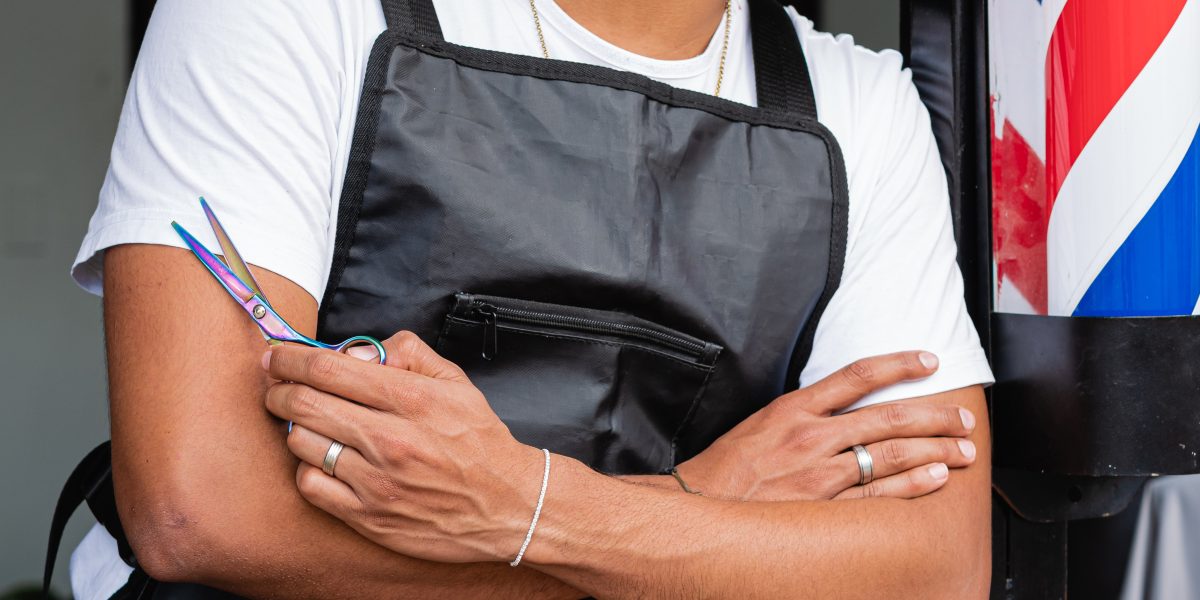From Server to Barber: How I Passed the Texas Exam in 8 Weeks
Changing careers can feel overwhelming, especially when you’re moving from a completely different field. This is the story of how I transitioned from working as a restaurant server to becoming a licensed barber in Texas — and passed the barber exam in only 8 weeks. Along the way, I discovered that the key wasn’t just talent, but structure, discipline, and knowing exactly what the state exam would require of me.
Why Barbering?
I had always loved cutting friends’ hair in high school, but I never thought it could be a real career. After the pandemic disrupted restaurant work, I decided to follow my passion. The appeal of barbering was clear: creative hands-on work, flexible income, and the ability to build something of my own. Texas has a thriving barber culture, so I set my sights on getting licensed as quickly as possible.
Week 1–2: Foundation & Sanitation
The first two weeks were about mastering theory. I logged into online modules covering sanitation, client protection, and barbering law. Texas emphasizes infection control and blood-borne pathogen awareness, so I studied those sections daily. I made flashcards for every term and drilled them while commuting or during breaks.
Week 3–4: Core Techniques
Once I had the theory foundation, I shifted to practical drills. I scheduled mannequin practice every evening: clipper-over-comb, tapering, and line-ups. My focus wasn’t speed at first, but precision. I filmed my practice, then compared against instructor demos online. By the end of week 4, I could produce consistent low fades and clean outlines.
Week 5–6: Mock Exams & Timed Drills
To simulate test conditions, I created a schedule that mirrored the exam format. Each practice run included:
- Sanitation setup (disinfect tools, arrange workstation)
- Basic haircut within the time limit
- Shave service demonstration
- Clean-up and client dismissal procedure
Timed drills were stressful at first, but they built confidence. I realized exam success was as much about efficiency as it was about skill.
Week 7: Filling the Gaps
I reviewed my weakest areas — primarily razor shaves and written law questions. I booked a practice session with a licensed mentor who corrected my stroke angles and explained how examiners score points. I also joined online study groups where others shared practice questions and mnemonics for state regulations.
Week 8: Final Prep & Exam Day
The final week was all about repetition and mental focus. I avoided cramming the night before, choosing instead to prepare my kit carefully: labeled containers, fresh disinfectant, clean tools. On exam day, I walked in calm because I had rehearsed the process so many times. The exam felt like just another drill — and I passed on the first try.
Key Takeaways for Other Students
- Break learning into phases: Theory → Practice → Mock Exams → Final Review.
- Use a timer: It trains your body to work at exam pace.
- Film yourself: Watching mistakes is the fastest way to correct them.
- Don’t skip sanitation drills: Many students fail on preventable sanitation errors.
Advice If You’re Starting
If you’re in Texas and just starting out, consider combining online modules with hands-on mentorship. Begin with an Apprentice Certificate to structure your hours, then move into Exam Prep to polish exam performance. If you’re under 17, start with Junior Cuts to build early skills.
Life After Licensing
Passing the exam isn’t the end — it’s the start. I began booth renting in a local shop, then used the Business & Marketing Course to set up my Google Business Profile and Instagram page. Within three months, I was fully booked on weekends. The leap from server to barber was worth every hour of effort.
FAQ
How many hours are required in Texas? Texas requires 1,000 hours of training. Online modules can cover theory, but shop hours must be completed under supervision.
Can you really prepare in 8 weeks? Yes, but only if you dedicate several hours per day. Most students take longer, but a structured plan speeds the process.
What if I fail? Retakes are allowed, but costly. Invest in proper prep before exam day to avoid delays.
